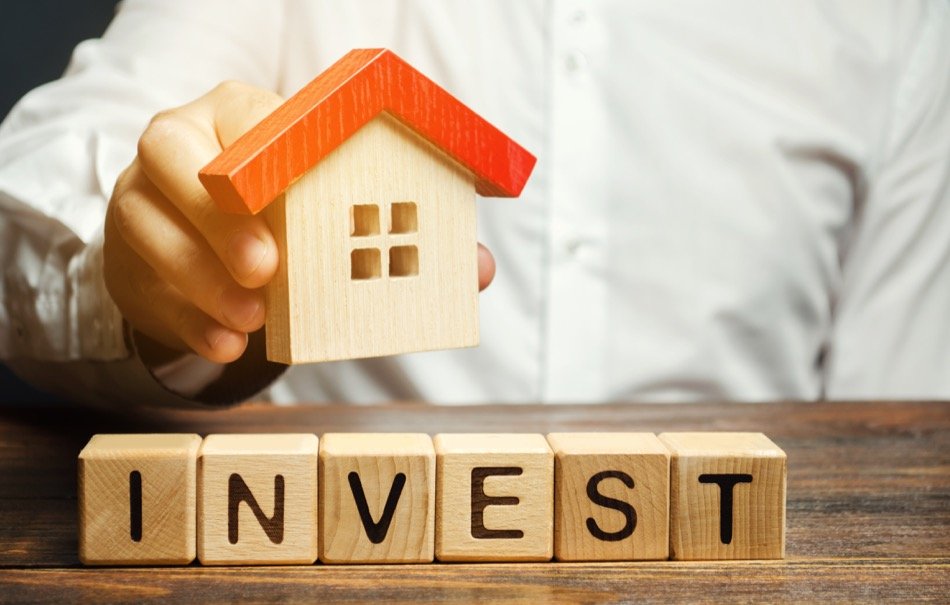Real estate has always been a good way to make money because it gives you both passive income and long-term growth. But one of the biggest things that stops people from becoming investors is the idea that they need a lot of money to start. The good news is? That’s just not true. This complete guide will show you how to invest in real estate with little money using tried-and-true methods that are easy for beginners to understand.
There are ways to build a real estate portfolio without going broke, whether you have student loans from college or work full-time and live paycheck to paycheck.
Why It’s Worth It to Work in Real Estate
Before we talk about low-cost strategies, it’s important to know why real estate is still a key part of building wealth:
- Real estate is a tangible asset, which means it is something you can touch and use. Stocks, on the other hand, are not.
- Leverage: You can use borrowed money to make your returns bigger.
- Cash Flow: Rental properties bring in money on a regular basis.
- Appreciation: The value of a property usually goes up over time.
- Tax Benefits: Deductions and depreciation can lower the amount of money you have to pay taxes on.
What’s even better? Investors of all levels can take advantage of these benefits, even those who are just starting out with a small amount of money.
See Also:
Should You Sell Your Home Without an Agent? The Truth About FSBO
1. House Hacking: Live for Less and Build Equity

If you want to learn how to invest in real estate with little money, house hacking is one of the best ways to do it. The idea is easy: buy a house, live in one part of it, and rent out the rest.
How It Works:
- Buy a duplex, triplex, or fourplex for more than one family. You can live in one unit and rent out the others.
- If you own a single-family home, you can rent out extra bedrooms or turn your basement or garage into a rental space.
Why It Works:
- Lower living costs: Your rental income pays for or lowers your mortgage.
- Low down payments: You can buy with an FHA loan with as little as 3.5% down.
- Build equity: Each payment on your mortgage adds to your ownership.
Example from the real world:
Sarah, who just graduated from college, used an FHA loan to buy a triplex. She rented out the other two units and lived in one, which meant she didn’t have to pay rent and was building equity.
Don’t miss:
- How to Invest in Real Estate with Little Money: Beginner Tips That Work
- What Homebuyers Should Know About Eco-Friendly Real Estate
- Remote Work and Real Estate: How the Work-From-Home Era Is Changing What Buyers Want
2. REITs: Investing in Real Estate Without Actually Owning It
Real Estate Investment Trusts (REITs) are a good way for people who want to get started without having to take care of property.
What Are REITs?
REITs are businesses that own or lend money to real estate that makes money. They are like stocks in that they pay dividends from the money they make from renting out their properties.
Pros:
- Low initial investment: You can buy some REITs for less than $100.
- Liquidity: You can easily buy and sell it on the stock market.
- Diversification: Means having investments in a lot of different types of real estate.
Things to think about:
- You don’t own any real estate.
- Like other stocks, it is subject to market fluctuations.
Platforms you can trust:
- Vanguard Real Estate ETF (VNQ)
- Fundrise (non-traded REITs for more direct exposure)
3. Crowdfunding for Real Estate: Invest with a Group

Crowdfunding sites get money from a lot of investors to pay for real estate projects. With this method, you can put money into bigger projects with a small amount of money.
How It Works:
- Pick a platform like Fundrise, RealtyMogul, or CrowdStreet.
- Put money into homes, businesses, or properties that can be used for both.
- Get returns through dividends and price increases.
Why It’s Good for Newbies:
- Low minimums: Sometimes as low as $10 or $100.
- Passive: No responsibilities as a landlord.
- Clear: Most platforms let you track your performance in detail.
Tip:
Stick with platforms that have a good track record and follow SEC rules. Check the small print for fees and lock-in times.
4. Seller Financing: Creative Deals That Don’t Need a Bank
When the seller finances the property, they act as the lender. You pay the seller directly instead of getting a mortgage from a bank.
Pros:
- No credit checks or bank requirements
- Terms and down payments that are flexible
- Faster closing time
How to Find Deals Where the Seller Pays:
- Look for listings that say “For Sale By Owner” (FSBO).
- Meet up with other real estate investors or people who want to buy real estate.
- Find a real estate agent who knows how to work with creative financing.
What You Should Know in Real Life:
James made a deal with a retired person who was selling a duplex. He agreed to make monthly payments with a low interest rate and only $5,000 down, which let him own the house without a traditional mortgage.
5. Wholesaling: Flip Contracts, Not Houses
Wholesaling means finding a property that is worth less than the market value, getting it under contract, and then giving that contract to another buyer for a fee.
How It Works with Little Money:
- You don’t buy the house.
- Only needs earnest money, which is usually between $500 and $1,000.
- The assignment fee brings in money.
Important Skills:
- Negotiation
- Finding sellers who are eager to sell
- Making a network of people who buy things with cash
Possible Earnings:
Depending on the property and location, a successful wholesale deal can make between $5,000 and $20,000 or more.
6. Lease Options: Invest Without Ownership
A lease option, also called rent-to-own, gives you the right to rent a property with the option to buy it later.
Good Things:
- Low initial costs: Usually just a small fee for the option.
- Time to save money or build credit before you buy.
- Control: You can either sublease the property or make improvements to it while you are renting it.
This method works well in markets that aren’t as busy and where sellers are more open to offers.
7. Partnering Up: Work with Others to Pool Your Resources
If you don’t have any money but do have time, skills, or a strong network, working with others can help you get started.
Partnerships Come in Different Types:
- Money partner: Gives money.
- Operating partner: In charge of the property or deal.
Both Sides Win:
- Share the profits based on what you put in.
- Lower your own risk.
Be Careful:
Always have a legal agreement for your partnership. Set up roles, duties, and plans for leaving.
8. Put Money into Deeds and Tax Liens
When people don’t pay their taxes, local governments sell tax liens. People who buy these liens make money by collecting interest or getting the property if the owner doesn’t pay.
Pros:
- Low initial cost: Some liens can be bought for less than $1,000.
- High potential returns: Interest rates can go up to 15% or more.
Risks:
- To prove ownership, you might have to foreclose.
- Tax lien sales are not allowed in all places.
Find out when and how to bid on your county’s website.
9. Turnkey Properties: Investments That Are Ready to Rent

Investors buy renovated properties that are already rented out from turnkey companies. You still need some money, but many of them offer seller financing or partner programs.
Why It’s Easy for Beginners:
- No need for rehab
- Cash flow right away
- Property management was often part of the deal
Make sure the provider is trustworthy. Get copies of the rent rolls, expense reports, and inspection reports.
10. Take Advantage of Low-Down Payment Loans
Even if you don’t want to house hack, there are a number of loan programs that can help you buy a home with little or no money down.
Here Are Some Options:
- FHA Loans: You only need to put down 3.5% and your credit score can be flexible.
- VA Loans: Military members and veterans can get them with no money down.
- USDA Loans: Let you buy rural property with no money down.
These loans aren’t right for every market, but they do let people buy homes, which is the first step in building a real estate portfolio.
Advice from Experts for Long-Term Success
No matter which strategy you choose, the key to success is to be ready, be disciplined, and keep learning.
1. Always Learn New Things
- Read books like The Millionaire Real Estate Investor by Gary Keller or Rich Dad Poor Dad by Robert Kiyosaki.
- BiggerPockets, The Real Estate Guys, and REtipster are some podcasts to listen to.
- Go to local real estate meetups.
2. Be Aware of Your Numbers
- Know what cash flow, cap rate, and ROI mean.
- Use spreadsheets and calculators to figure out if a deal is good.
- Always think about the costs of repairs, vacancies, and management.
3. Create a Strong Team
- Agent: Works with investment properties.
- Lender: Gives out loans at low rates.
- Contractor: For repairs or improvements.
- CPA: Helps with tax planning.
4. Begin with Small Things and Think Big
Pick one strategy and get really good at it. Consistency builds momentum, whether you’re house hacking, investing in REITs, or wholesaling.
Things to Avoid Making Mistakes
- Overleveraging means borrowing more than you can pay back.
- Not doing due diligence: Always check the numbers and look at the properties.
- Not taking into account repairs, vacancies, and turnover costs.
- Emotional choices: Don’t let your feelings guide your investments; let the data do that.
Last Thoughts: Begin Now, Begin Wisely
It’s not only possible to learn how to invest in real estate with little money, but thousands of successful investors have already done it. These strategies have worked for a long time and will continue to work for a long time. No matter if you want to hack a house, invest in REITs, or wholesale, the first step is to take action.
You don’t have to wait until you have six figures saved up. You can start building wealth through real estate today, even if you don’t have much money. All you need is creativity, education, and hard work.





